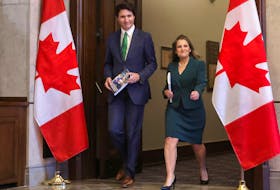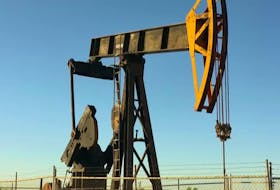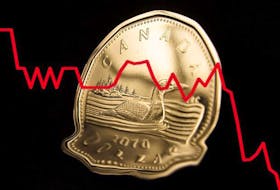Canada’s in-progress ideo-political rift with China fixed the nation’s gaze on agriculture for much of 2019. China’s embargo of our soybeans and canola made the news. Poor harvest conditions and falling commodity prices did, as well. Canadians became more aware of the challenges, needs and mechanics of the agricultural sector.
The attention represented the opportunity inherent in what may be a renewed desire to learn about where our food comes from, but the agriculture sector is facing an uphill battle. It, like nearly every other sector, has an epistemic dilemma to deal with. People don’t have the capacity to know everything. Omniscience is an unrealistic expectation.
As a farmer, and as one who has worked in a newsroom, it has been a mission of mine, albeit a lofty one, since moving back to the farm to rid the world of stale attitudes towards farming and the agricultural industry.
When I talk about how much fuel my farm uses, more often than not I get one of two responses: either I am praised as a champion of Canada’s oil and gas sector or rebuked as someone who is destroying the earth.
In the process of crafting defences to both misalignments, I was struck by how unfair it is for me to assume that everyone else has my perspective or even has the ability to see things the way I do. The average person making their living off something unrelated to agriculture may have only been exposed to a very limited body of knowledge regarding how food is produced. It would be nearly impossible for someone to extricate his or herself from that context.
If you grew up going to coffee shops in small rural, Canadian towns, you’d likely have a very different attitude towards farming than if you grew up writing ad copy on your laptop at Starbucks.
People feign objectivity because it’s safe and easy, but none of us has it. It should concern all of us when watchdogs claiming to be objective brazenly expose their bias on issues they haven’t bothered to intelligently unpack. Agriculture has suffered setbacks due to poor, unbalanced media coverage. Few of us know enough to say the things we do or dismiss ideas, trends or people with such indignation.
If we can accept this — if we can accept that there are gaps in what we think we know about agriculture and that maybe, just maybe, there’s a bigger and better perspective around the corner, I think Canada’s agrifood industry could become quite honourable.
The agricultural sector needs leaders with this perspective. It needs people in Ottawa who understand the realities of farming and have the fortitude to make systemic changes that will ensure Canada’s place on the global food stage.
I am unable to explain without eliciting judgment all the considerations of a modern farm, but you could look inward, identify your knowledge gaps and learn for yourself. Visit a farm. Reference a diversity of research papers. Talk to someone outside your echo chamber.
In 2020, let’s buck the protectionism we see happening across the globe and let reason prevail.
Agriculture in Canada has a lot of unrealized potential. We grow and make a lot of food that the world wants, and by and large we’ve got good heads on our shoulders.
I still have 90 acres of soybeans sitting in the snow, where they will remain until spring, but I am optimistic about 2020. Canadian winters have an uncanny way of renewing attitudes.
Copyright Postmedia Network Inc., 2020







